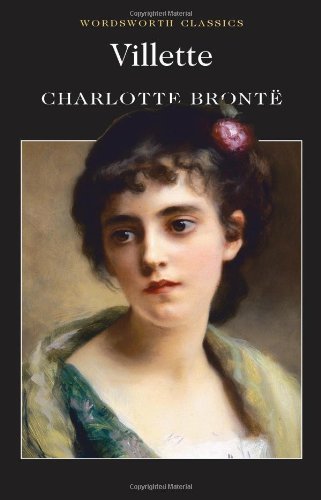
Armchair travel around the world!
Start your reading adventures with our FREE Reading Atlas.

- Around the World in 14 Books
- 7 Thrilling Book Series
- 6 Audiobooks That Are Like Theater For Your Ears



This Victorian novel (672 pages) was published in December of 2004 by Wordsworth Editions. The book takes you to 19th century Belgium. Melissa read Villette and loved it; it wouldn't be on our site if she didn't recommend it.
Bookshop.org is an online bookstore with a mission to financially support independent bookstores and give back to the book community.

This was Charlotte Brontë’s final novel, and for some literary critics, it was her best.
The story is pretty straight-forward: an orphaned girl with zero prospects pulls herself up — time and time again — to be a teacher in a fictional Belgian city called Villette. But don’t be fooled: This is a challenging and weird book. If you’re a Jane Eyre fan, prepare yourself for something completely different.
Our heroine Lucy Snowe could not be more unlike Jane, despite their surface similarities. She’s a slippery narrator, and though you will probably find yourself rooting for her, you may not like her very much. Many of the other characters’ motives remain murky, as well, but one young lady — Ginevra Fanshawe — is transparent as chiffon, and she is a hoot.
There’s plenty of plot to chew on when you’ve finished wondering whether you should trust Lucy, what little Polly is up to, and what’s become of Ginevra.
As Brontë keeps the action moving, she also tackles big issues of the time: Feeling vs. Reason, Catholicism vs. Protestantism, the infantilization of women to keep them in line, and the limited roles of unmarried (and, therefore, unworthy) women.
But this novel isn’t preachy — it’s actually a bit gossipy. Lucy’s story gives us an intimate peek inside the classrooms of the school: the petty squabbles, the challenges of dealing with the headmistress, the privilege of the students, secret love letters and assignations, and… Oh, goodness! Is that a ghost?!
There’s an unsettling dreamy quality to the narrative and archetypical gothic elements that crash into an ambiguous ending you’ll be thinking about for a long time.
No mockery in this world ever sounds to me so hollow as that of being told to cultivate happiness. What does such advice mean? Happiness is not a potato, to be planted in mould, and tilled with manure. Happiness is a glory shining far down upon us out of Heaven. — Charlotte Brontë
Wanna help us spread the word? If you like this page, please share with your friends.
Strong Sense of Place is a website and podcast dedicated to literary travel and books we love. Reading good books increases empathy. Empathy is good for all of us and the amazing world we inhabit.
Strong Sense of Place is a listener-supported podcast. If you like the work we do, you can help make it happen by joining our Patreon! That'll unlock bonus content for you, too — including Mel's secret book reviews and Dave's behind-the-scenes notes for the latest Two Truths and a Lie.
Join our Substack to get our FREE newsletter with podcast updates and behind-the-scenes info — and join in fun chats about books and travel with other lovely readers.

We'll share enough detail to help you decide if a book is for you, but we'll never ruin plot twists or give away the ending.
Content on this site is ©2026 by Smudge Publishing, unless otherwise noted. Peace be with you, person who reads the small type.